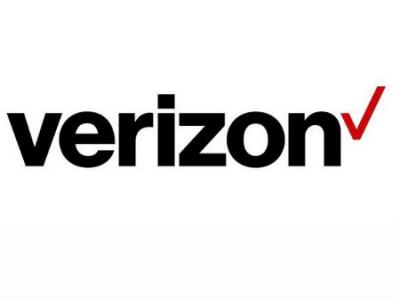Unions Threaten Verizon With Strike
The smarter way to stay on top of the multichannel video marketplace. Sign up below.
You are now subscribed
Your newsletter sign-up was successful

WASHINGTON — Two unions representing Verizon Communications workers along the East Coast have set a Wednesday (April 13) deadline to strike against the company.
Among the 39,000 Communications Workers of America and International Brotherhood of Electrical Workers-represented employees from Massachusetts to Virginia affected would be workers on the telco’s Fios TV video service, as well as telephone and broadband services.
“Even though Verizon made $39 billion in profits over the last three years — and $1.8 billion a month in profits over the first three months of 2016 — the company wants to gut job security protections, contract out more work, offshore jobs to Mexico, the Philippines and other locations and require technicians to work away from home for as long as two months without seeing their families,” the unions said in announcing the deadline. “Verizon is also refusing to negotiate any improvements in wages, benefits or working conditions for Verizon Wireless retail workers, who formed a union in 2014.”
The unions’ contracts expired in August 2015, and they said it is now time to take a stand after offering “hundreds of millions of dollars in cost savings” and still not getting the basic job security they are seeking.
The unions said Verizon is:
• “Offshoring and contracting out even more customer service work to Mexico, the Philippines and other locations.”
• “Cutting job security for all workers.”
The smarter way to stay on top of the multichannel video marketplace. Sign up below.
• "Requiring technicians to work away from home for as long as two months, without seeing their families. For anyone trying to balance work and family life, this is impossible.”
• “Refusing to negotiate improvements to wages, benefits and working conditions for Verizon Wireless workers, who formed a union with CWA in 2014.”
• “Freezing pensions at 30 years of service and forcing retirees to pay extremely high health-care costs.”
• “Slashing benefits for workers injured on the job.”
"For years, Verizon has been cutting vital staff — it has nearly 40% fewer workers now than a decade ago,” the unions added.
“Verizon has failed to hire the personnel necessary to properly roll out Fios, the high-speed broadband service that is still unavailable to many of its customers,” the unions said. “In cities like Philadelphia and New York, Verizon has failed to meet the buildout obligations under their citywide cable-franchise agreements.”
Verizon was talking tough in its response, too. The telco countered that it remains committed to a deal, but said the unions would “rather make strike threats than constructively engage at the bargaining table.”
Verizon said it could continue to serve its customers whether of not the unions struck and that it has been preparing for that possibility for more than a year, training nonunion workers to do “virtually every job function handled by our represented workforce.”
Verizon said it has offered:
• “A 6.5% wage increase over the term of the contract.”
• “Access to quality and affordable healthcare benefits.”
• “Competitive retirement benefits, including a 401 (k) with a company match.”
But Verizon also said it is looking to modernize “legacy contracts” that date back decades as it seeks “greater flexibility to manage and utilize its workforce to gain operating efficiencies and better customer experiences.”
As with other telcos, Verizon is transitioning from legacy copper networks to fiber and Internet-protocol delivery.
“Legacy constraints that may have made sense in the Ma Bell era of phone booths and Princess phones don’t make sense in today’s digital world with high-speed connectivity and dynamic customer demands,” Marc Reed, Verizon’s chief administrative officer, said in response to the strike threat. “Union leaders need to realize that there are real issues that will need to be addressed with or without a strike.
“Our goal is to continue providing good jobs with competitive wages and benefits and make the wireline business more successful now and in the future. Union leadership needs to be realistic and work with us to help make that happen,” Reed said.
But if not, said Bob Mudge, president of Verizon’s wireline network operations, "If a strike takes place, whether it’s one day, two weeks or longer, we are ready.”
Contributing editor John Eggerton has been an editor and/or writer on media regulation, legislation and policy for over four decades, including covering the FCC, FTC, Congress, the major media trade associations, and the federal courts. In addition to Multichannel News and Broadcasting + Cable, his work has appeared in Radio World, TV Technology, TV Fax, This Week in Consumer Electronics, Variety and the Encyclopedia Britannica.

